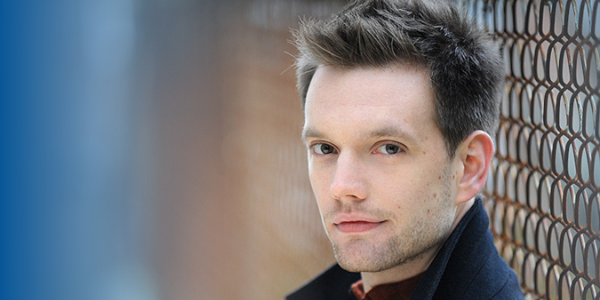Storytelling Saved My Life—It Can Save Yours Too
- Written by Joshua Rivedal

Captain’s log: Stardate January 2011, where, unfortunately, many have gone before. I’m twenty-six years old and thinking about dying — actually, I’m not being entirely truthful. I’m about to attempt suicide in my bedroom in New York City.
I don’t really want to die. I just want the emotional pain to stop, and I don’t know how to do that. Heck, two guys in my life—my father and grandfather—each didn’t know how to make their own terrible personal pain stop, and now both were, well, dead.
My grandfather, Haakon—a Norwegian guy who served in the Royal Air Force (35th Squadron as a tail gunner) in World War II—took his own life in 1966 because of the overwhelming post-traumatic stress he suffered because of the war.
My father, Douglas—an American guy who was chronically unhappy and an abusive man—died by suicide in 2009, the catalyst being a divorce from my mother along with some long-term depression and other mental and physical health issues.
How did I get to such a dismal place in my life so quickly, just shy of my twenty-seventh birthday? Coming out of high school and high on optimism, I thought by the time I reached my mid-twenties, I’d have it all together. After a couple of years singing on Broadway, I would have scored a few bit parts on Law & Order and transitioned seamlessly to being cast with Will Smith in the summer’s biggest blockbuster. After which, my getaway home in the Hamptons would be featured in Better Homes & Gardens. Not to mention, I’d have my perfect wife and perfect family by my side to share my success.
But instead, “perfect” was unattainable—it always is. I only managed to perform in some small- and medium-sized professional theatre gigs and on one embarrassing reality television show. In the previous eighteen months, my father had died, my mother betrayed me and sued me for my father’s inheritance, and my girlfriend of six years broke up with me.
This storm of calamity and crisis had ravaged my life and I wasn’t talking about it to anyone. My silence led to crisis and unhealthy decisions—to the extent that I felt death was my only option for relief.
Both Haakon and Douglas suffered with their pain in silence because of the stigma surrounding talking about mental illness and getting help. I, too, felt that same stigma. I feared being seen as “crazy” or “less of a man” if I talked about what I was going through. But I didn’t want to die, and so I had to take a chance.
I started talking. I first called my mom. She helped me through that initial crisis, and we became friends again. She never called me “crazy.” I then started reaching out to the positive friends I had in my life. They hugged me and helped me with open arms. They never told me I was “less of a man.” Soon, I got more help by seeing a professional counselor, and by writing down what I was going through in a journal.
But this idea of keeping silent continued to bother me. I did some research while in the initial stages of recovery and found out that each year, suicide kills over one million people worldwide and that many of those one million never spoke up about their emotional pain because of stigma.
I had to figure out a way to reach people who are struggling. So, like any other actor, writer, or comedian living in New York City whose life dealt them a lousy hand, I created a one-person show—the love child of stand-up comedy and traditional theatre—and toured theatres and universities in the United States, Canada, England, and Australia. It was an amazing experience to see people getting help through the production.
But I had to keep talking because this isn’t just a Rivedal problem or a problem in the United States—it’s a world problem. I had to get other people to tell their stories, so I started asking others to share their stories through a mission called The i’Mpossible Project. Why? Because storytelling is one of our oldest traditions. Stories can make us laugh or cry or both at the same time. They can teach, inspire, and even ignite an entire movement.
It’s been ten years since my crisis, and life is definitely looking up. Being a writer and creative is going well overall. I have an incredible and massive support system. But most importantly, I’m able to give and receive help and love, and with hard work, I’m able to stay mentally well—all because I took a risk and told my story.
No matter what society says, it’s cool—as in “okay”—to tell your story. Don’t ever forget that you are important, and your story needs to be heard so we, the human race, can learn how to live and love better.
Joshua Rivedal is a speaker, author, comic, and the creator and founder of Changing Minds: A Mental Health Based Curriculum and The i’Mpossible Project. He has spoken about suicide prevention and mental health across the United States, Canada, the United Kingdom, and Australia. Joshua is trained in human capital management with an emphasis in coaching from NYU, community counseling from the Southern California Counseling Center, and in the suicide prevention modalities QPR and ASIST. His original coursework on suicide prevention is taught in Washington State to various professions such as dentists, pharmacists, and occupational therapists. Joshua lives in Philadelphia and in his spare time practices Taekwondo and cooks elaborate meals for the people he loves.






















